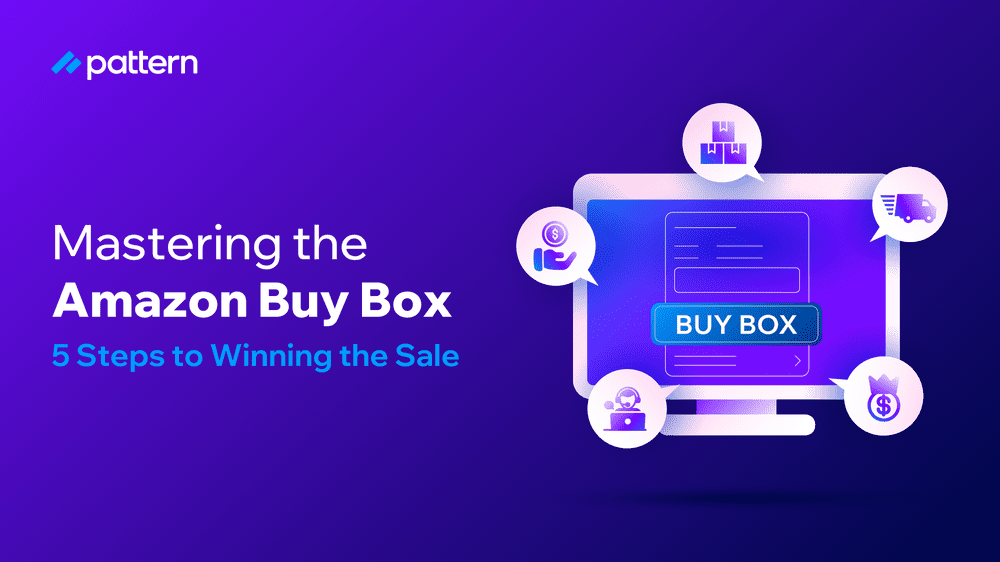Ecommerce Agencies: Band-Aid or Solution?
When your business needs support, is an agency the right place to turn? Learn the pros and cons of agency assistance.

If your business is growing and you’re finding more and more need for support on various responsibilities, you’re probably asking yourself if you should hire contractors, new employees, or a specialized agency to help. An agency has expert experience after all, but does that extra support only help temporarily?
An agency can do a lot for your ecommerce brand when you’re in a tight spot: they can give you specialized advice, relieve some of the pressure on your team, and help you expand your brand presence in exciting new areas. Most businesses overwhelmingly choose to work with agencies when they’re trying to grow their brand, but are agencies really worth it? Or are they only a short-term solution for your brand’s needs?
Why brands choose to work with agencies
The cold, hard reality of working in ecommerce is that having only two or three pairs of hands to get the job done doesn’t cut it anymore. Ecommerce is too big and it’s too complex, with a myriad of moving parts to manage. Can you really expect a single employee to manage multiple product SKUs on multiple marketplaces using multiple advertising platforms, and be extraordinary at all of it?
This mindset is what contributes to ecommerce teams being overworked. When you only have the time and manpower to focus on one area of ecommerce, fires—like disparate data or price erosion—will inevitably start in other areas of your ecommerce. And when that happens you’ll somehow have to find the time and resources to put them out. By the time you get around to it, there’s a good chance the issues have escalated or solidified. That’s why working with one or more agencies makes so much sense. Agencies can be a fix to some of these issues.
Agencies free up your time to work on other issues
Brands who hire outside agencies to take care of things like marketing or social media find themselves saving a significant amount of time on hiring, training, and onboarding their own staff to do this work, as well as simply managing the staff themselves. Agencies, in many ways, act like co-parents for your brand: they take much of the load off your shoulders so you can get back to business and bring home the bacon.
Agencies give you niche expertise
You might be an expert at web development, and maybe your teammates are marketing mavens. But, no matter how talented your team is, there are always going to be elements of your business that fall outside of your expertise or that you don’t have the resources to do yourself. Agencies address the issue of siloed expertise by giving you a professional outsider’s eye on key elements of your business.
There are agencies for your marketing, your advertising, your product images, your copy, individual marketplaces, international marketplaces—you name it! There’s an agency for everything. Agencies know their stuff, and they do it well so you don’t need to worry about it.
Agencies can improve sales
When sales are stagnating and you’re running out of ideas on how to improve, an agency can give your brand the juice it needs to get back in the game. Agencies supply brands with resources, sounding boards, and creative new perspectives on how they can grow. They also may have experience in proven strategies that you hadn’t considered, or didn’t know existed. The right agency can be a valuable addition for your ecommerce team.
The catch with traditional agencies
Even though there are very valuable benefits to working with an agency, a traditional agency isn’t always a one-and-done solution for your brand’s long-term needs. At best, an agency can take care of your immediate needs, bump your sales, and partner with you for long-term success. At worst, an agency can become an absolute money pit for your brand and do the exact opposite of what you hired it to do.
Traditional agencies can quickly get pricey
Entering into a contractual agreement with just one agency may cost you several thousand dollars per month for several years, and most ecommerce teams end up having to hire more than one agency to manage their brand. When costs pile up, soon your CEO is wondering what they hired you for in the first place if you are outsourcing so many responsibilities. They’re also questioning why they’re spending so much for services that aren’t driving significant profit. That’s a bad position for you and your team to be in.
Traditional agencies can have conflicting interests
Unfortunately, agency fees aren’t the only costly thing about them. Agencies have disparate interests that can create a lot of friction and ultimately interfere with your profits as well. While you’re concerned with growing your brand long-term, a traditional agency can be more incentivized to get in, drive quick results, and get out, even if they’re not spending your money in the most efficient or effective ways possible. Traditional agencies will almost always look after their interests first, making them the wrong fit for your needs.
It can be harder to coordinate efforts with traditional agencies
One thing that can be said about keeping all of your ecommerce grunt work in-house is that you can remain fairly consistent in your messaging, because it’s easier to keep everyone on the same page. Your team knows your brand better than anyone. Once you outsource to an agency, you’re working with an entirely different body that, like we mentioned previously, has different incentives, systems, and goals than you do. More agencies means more meetings, which means more planning, different reporting formats, and more paperwork.
In your efforts to create less work for your team, you may unintentionally create more headaches. But don’t give up yet. While traditional agencies can have some faults, there’s a more effective and inexpensive option for your brand. And this option can get you long-term growth, save your brand money, and impress your boss, all while you give your overworked ecommerce team the chance to breathe. That option is Pattern.
Pattern: Not your traditional agency, but a long-term solution
Pattern puts a twist on the typical ecommerce team and agency relationship by centralizing everything you need for your brand that you’d otherwise hire an agency to take care of—marketing, advertising, SEO, shipping and packaging, product design, marketplace expertise, D2C, we do it all! With our myriad of experts working on your brand, you can work with one ‘agency’ for everything instead of several agencies for individual areas.
We use extensive data analysis to find and address the pressure points wearing out your ecommerce team, too, so you can get back in business. The best part? All of these services are included when your brand partners with Pattern. But now you’re thinking, how much will this cost me? If agencies are expensive and Pattern is an upgrade, this is a pricey solution, right? Wrong. We believe in helping you succeed, and we’re so confident we can drive results that we pay you.
We buy your inventory, take on the risk, worry about the product advertising, sales, and fulfillment, and then we look to the future to see how we can help you even more. And because we assume the risk, we can’t succeed unless you succeed. We don’t just take your product and run, we collaborate with your brand strategies, needs, and goals so that everyone can win. A Pattern partnership is a lasting and supportive relationship. We invest heavily in your brand and put in the work to help you nail your long-term strategy and growth, not just benefit from short and gimmicky sales spikes.
You don’t have to worry about investing tens of thousands of dollars into a partnership that keeps your team busy with ineffective projects and doesn’t ultimately get your brand where it should be. At Pattern, we pay you first and we only win when you do. Get a demo today and see for yourself why Pattern had a 100% retention rate in 2020.





.jpg)
%20(1).jpg)